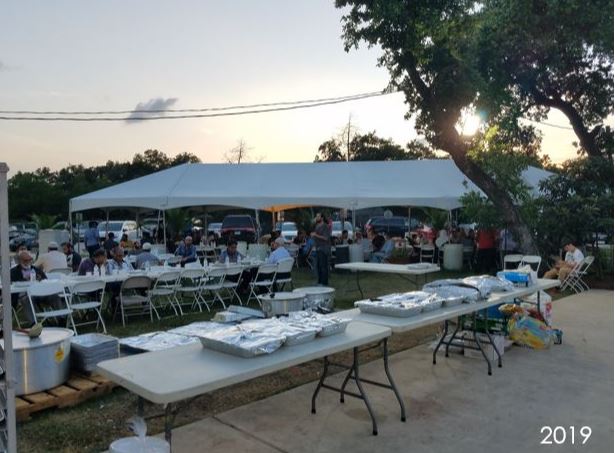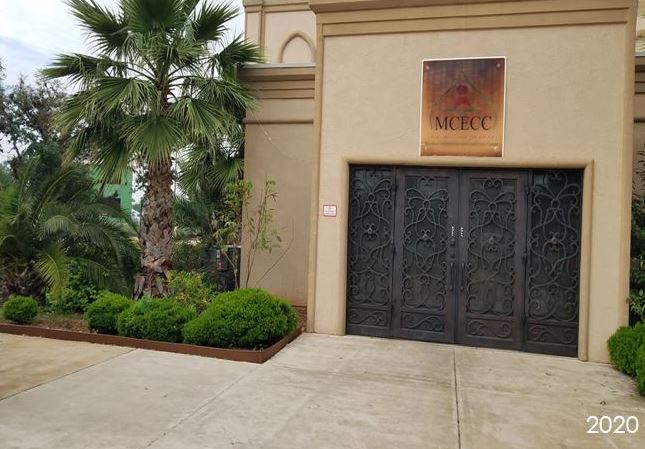By Ahmed Sharma, AsAmNews South Asian American Advisory Board
(Editor Note: This story originally published April 2020 has been updated)
Religious holidays are meant to be a time of solace and for people to humble themselves as they strive to get closer to a power greater than them. Unfortunately, the COVID-19 pandemic has impeded on several instances in people’s lives across the globe. And as Muslims observe Ramadan during these stressful times, it shows that under this pandemic, nothing is sacred.
Ramadan is an Islamic holiday (like Lent) where Muslims fast- abstain from food and drinks (even water) as well as other vices – from sunrise to sunset during a 30 day period which began Monday, April 12. Muslims also take the holy month to consider those less fortunate, practice patience, and devote time and energy to helping others.
It is a challenge to properly define Ramadan, as it means different things to other people. However, Ramadan can also be a very unifying time for Muslims as strangers become familial by faith as they congregate at the mosques for evening prayers and to break their fasts. However, with mosques closing because of the “stay at home” orders, bonds will not be forged among ordinary folks as they stand in line waiting for meals before sitting at large tables and feasting. For some Muslims like Darla King-Mufti, the pandemic is almost like missing 30 Thanksgiving dinners with people that may not even have family in the United States.
“Imagine having Thanksgiving dinner every day for 30 days with different families you love, one month every year, then BOOM you’re on a boat all alone,” King-Mufti said. “We have a family here, 3 children, my husband and myself, what about my brothers and Sisters [in Islam] with nobody?”
LATEST STORIES
As a wife and mother, King-Mufti said Ramadan is about family, togetherness, and solemn devotion.

“Ramadan is a time to reset, a time to draw closer to God, especially during these times of uncertainty,” King-Mufti said. “Praying, reading the Qur’an all as a family, teaching my children that fasting is so much more than just being hungry.”
On the other hand, some Muslims like Habiba Noor, Professor at Trinity University in San Antonio, feel that because fasting during Ramadan is a personal experience between them and God. Especially because the fast is determined by the sun rising and setting.
“While there is a lot of community gathering, for those that do it regularly as we grow older, there’s a quietness where we focus on ourselves,” Noor said. “It connects you not with a clock, but with a sun so it gives meaning outside of screens and I like that it disciplines us in that way.”
However, Noor noted Muslims may also yearn for the feeling Muslims get when they walk into the mosques and sharing the experience of fasting the entire day.

“The pandemic will make us miss the motivation of going to the mosque, you know there’s nothing like being among hundreds of people a bunch of people, who are also breaking their fast,” Noor explained. “When you share that experience, suddenly somehow you don’t feel as bad or you don’t feel hungry. It’s very private, but it’s also very collective in our motivation.”
In addition to collective fasting during Ramadan, Muslims also perform late night prayers known as Taraweeh. Some Muslims join at the mosque or at other people’s homes, but the coronavirus pandemic changes this as well. According to young Muslims like Mariyah Khan, social distancing has caused them to miss spending time with friends but not being able to go to the mosque during this holy time causes more dismay.
“I will miss going for taraweeh every night and the closeness and atmosphere of being there,” Khan said. “The last ten nights that people mainly spend at the mosque will most likely have to be spent at home, although this won’t change the amount of prayers done, the feeling of being together with friends during that time will be different.”
Despite the uncertainty with celebrating Ramadan during these uncertain times, people like ElMehedi Boujaidi, Deputy and Muslim Liaison for the Bexar County Sheriff’s Office in San Antonio, agree the shared experience with the pandemic will cause Muslims to find solace in religion more than ever.
“I think although we will be separated, we will be closer than ever to Allah,” Boujaidi said.

In fact, Boujaidi explained Ramadan was about redemption and notes when COVID-19 has reached its peak in the United States, perhaps it will also be a way for folks to, in a sense, have their own second chance.
“Ramadan is the cleansing of one’s soul, it’s also the time where you’re the most connected to Allah, and his messengers,” Boujaidi explained. “I think life itself will be a lot cleaner, if that makes sense, people will take hygiene and cleanliness way more seriously.”
It seems then in a sense Ramadan under the pandemic will be the ultimate test of patience. And while Ramadan is meant to be a humbling experience, the pandemic has turned people’s lives into a game of wits, where they are facing the ultimate test of patience. However, when the sun finally sets on this pandemic, Muslims, and non-Muslims alike, will be able to join again with their newly shared experiences. It is just a matter of time.
AsAmNews has Asian America in its heart. We’re an all-volunteer effort of dedicated staff and interns. Check out our new Instagram account. Go to our Twitter feed and Facebook page for more content. Please consider interning, joining our staff, or submitting a story.








